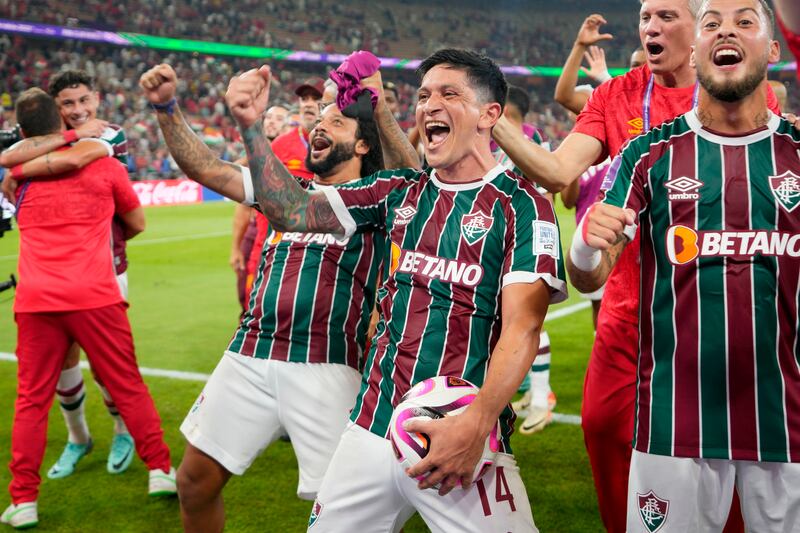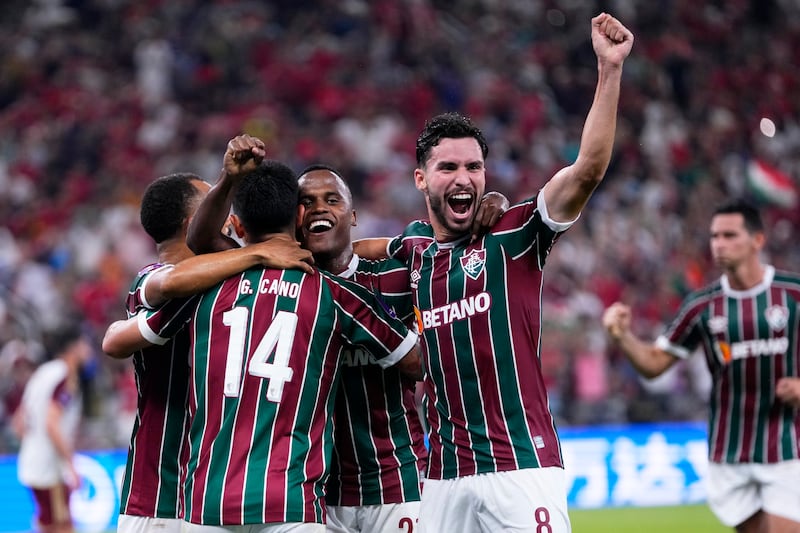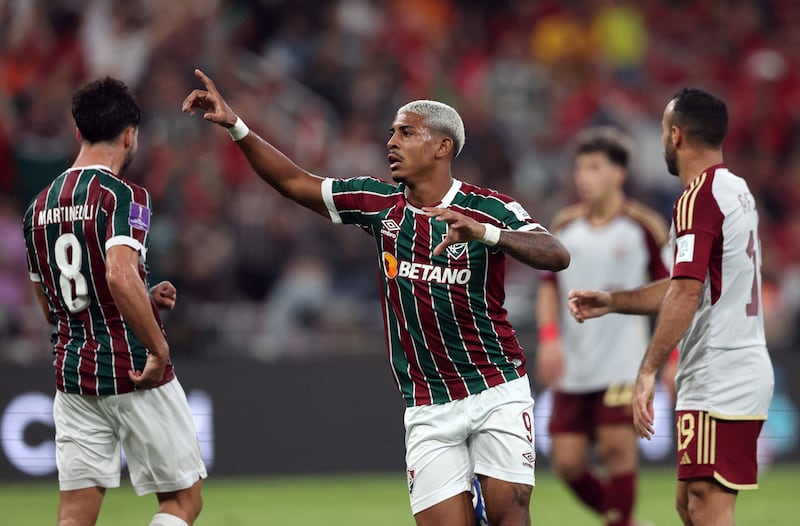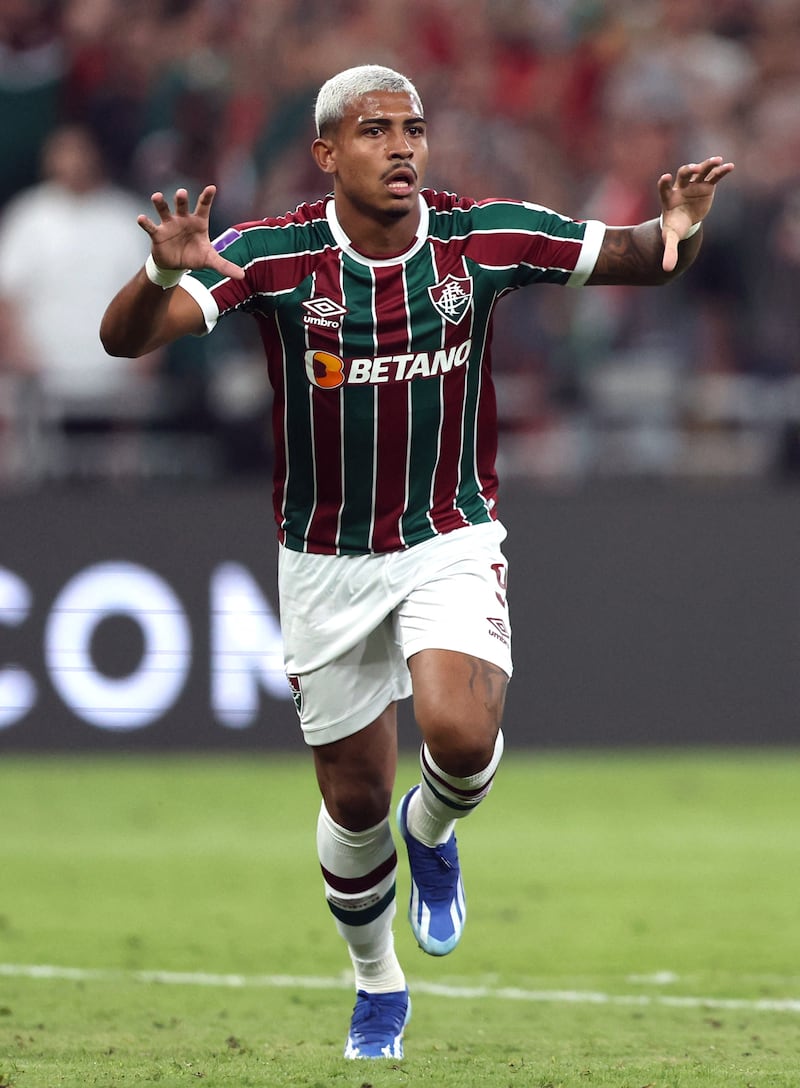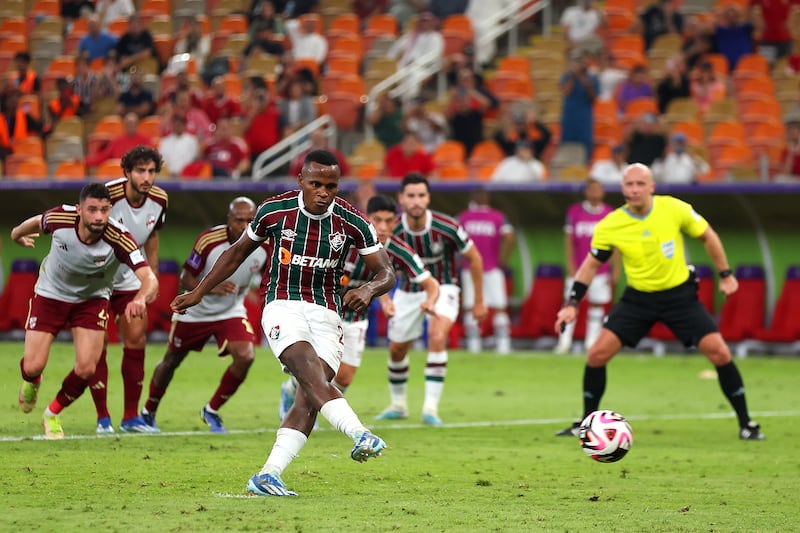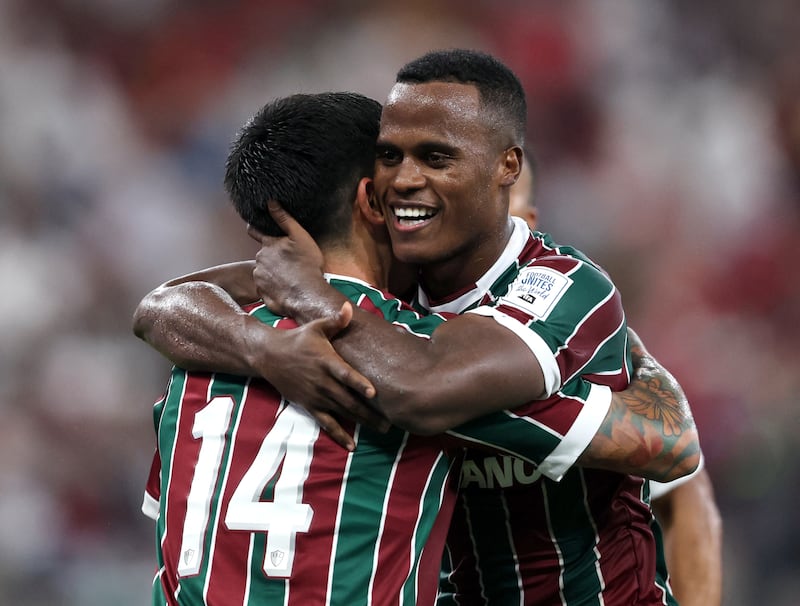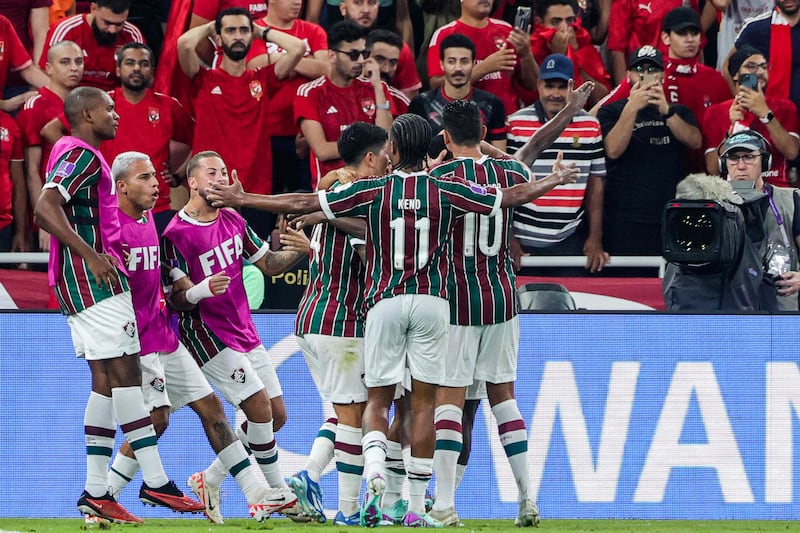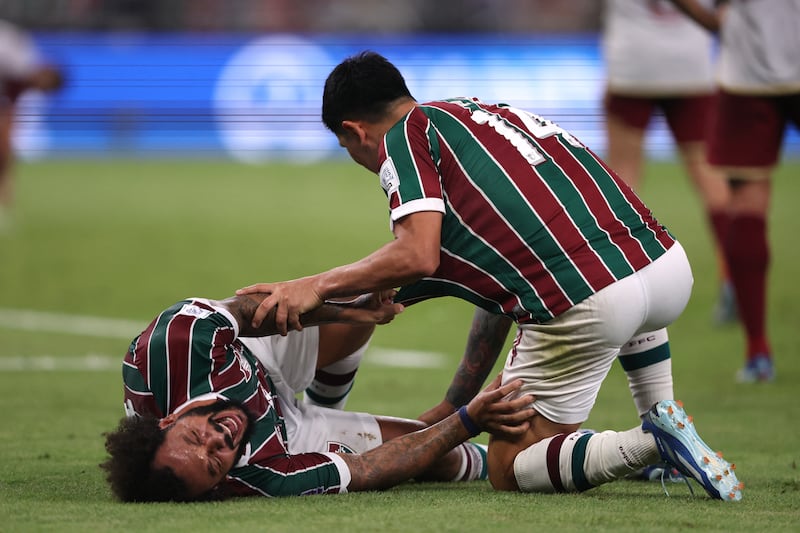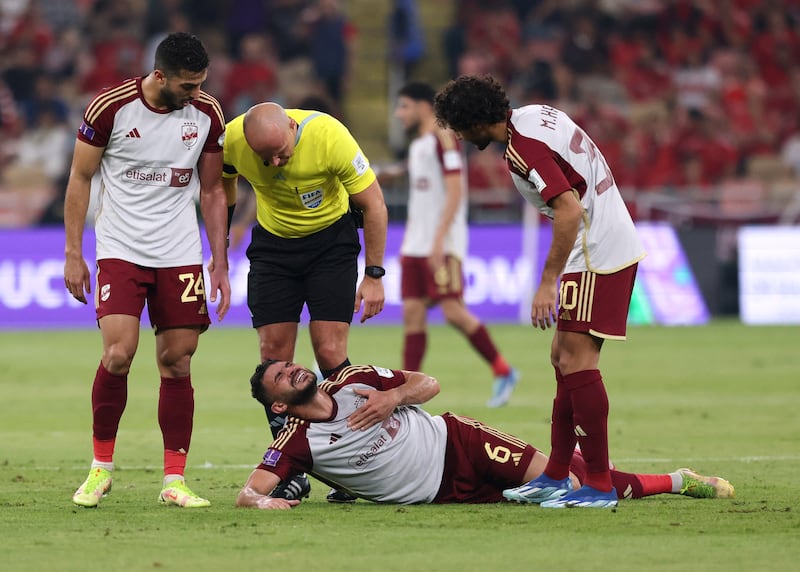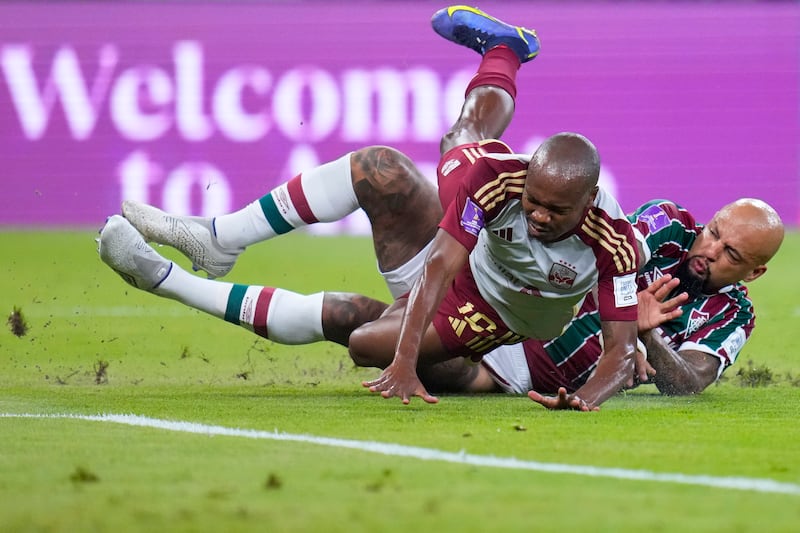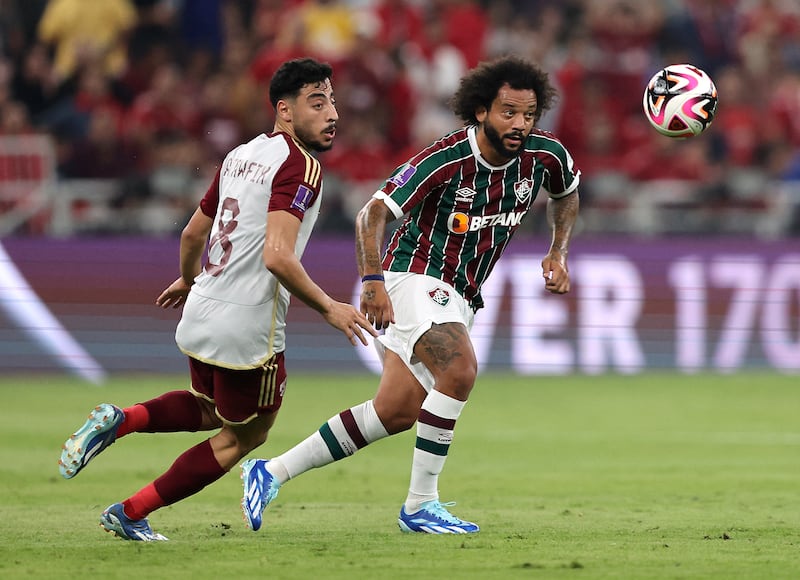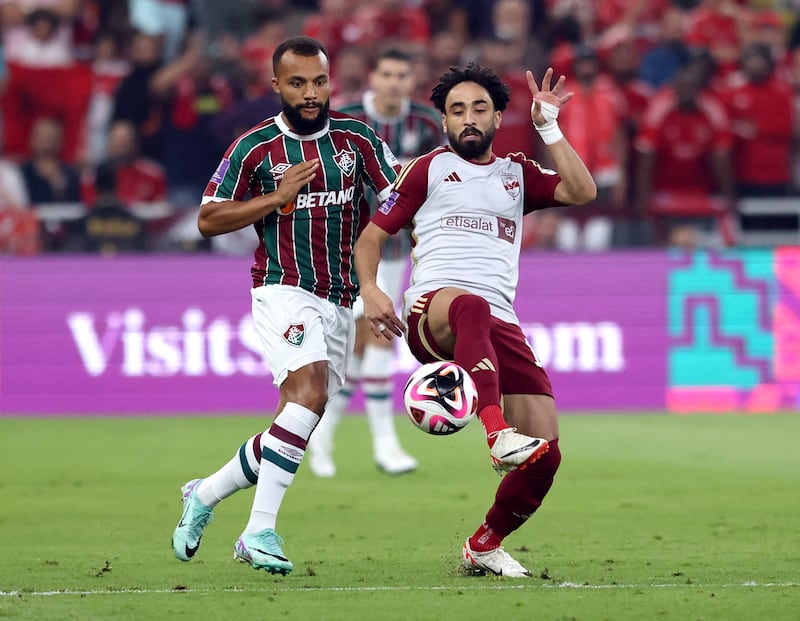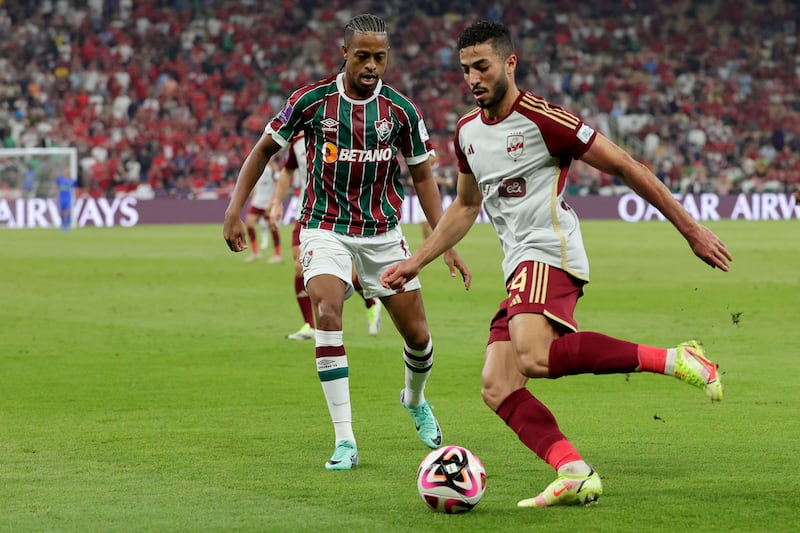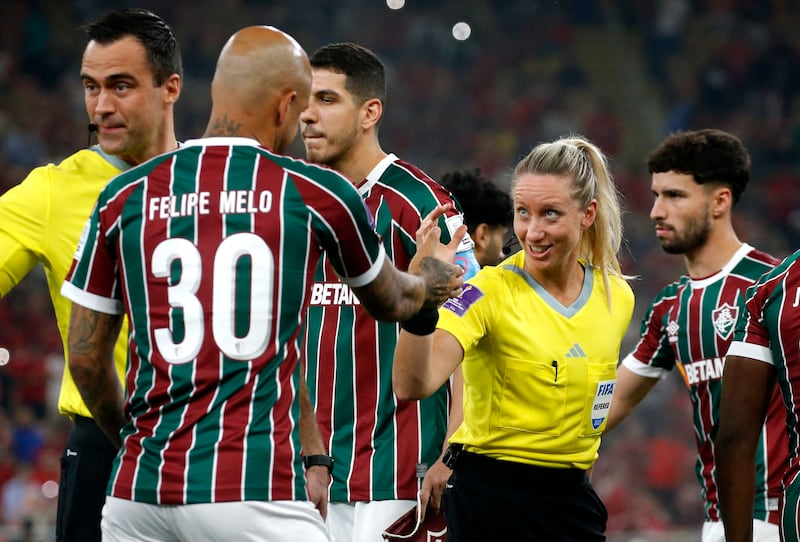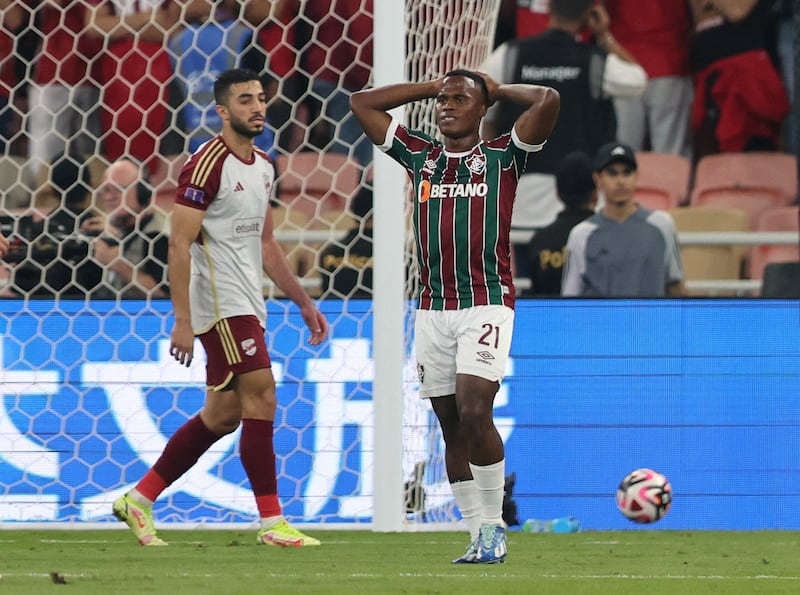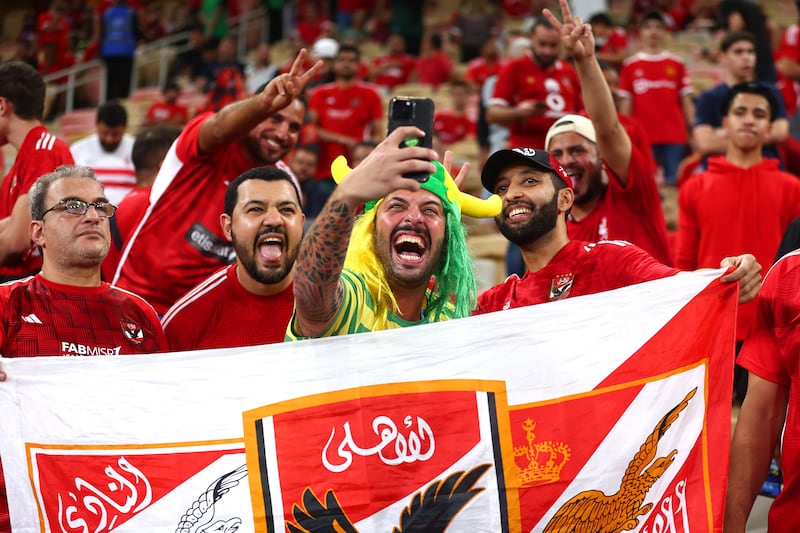In 1998, both Fluminense and Manchester City experienced relegation to the third tier of domestic football for the first and only time. It’s considered the lowest point in the history of both clubs, even if both were promoted back to the second tier at the first attempt.
On Friday, in Jeddah, they will contest the Fifa Club World Cup final, a first for both. Last season, both clubs won a first continental title after years of near misses.
Fluminense came close in 2008, reaching the final of the Copa Libertadores for the first time before losing to LDU Quito of Ecuador – who played Manchester United in the Club World Cup final.
And if we’re keeping track of their Manchester connections, they’re the only Brazilian team to play a game at Old Trafford (a friendly in 1986), they are the club United signed the Da Silva twins from, and they wear kits made by Manchester-based company Umbro.
Fluminense are one of the big four clubs of Rio de Janeiro, their Flu-Fla derby against Flamengo the most emblematic in Brazilian football. Flamengo, Brazil’s most popular club, only came about when students broke away from Fluminense to form their own side in 1911.
Fluminense were formed by aristocratic Englishman Oscar Cox and one of their greatest ever goalscorers was Harry Welfare, a Liverpool-born striker and English teacher who scored 163 goals in 166 games in a decade at the club around the First World War. Once perceived as the team of the upper classes, that has long changed, though Alex Bellos explains in his book Futebol: “I have met more Fluminense fans living in poverty who believe they are more socially refined than their Flamenguista neighbours – merely because of their choice of football club.”
Fluminense are estimated to be the 11-15th best supported club in the country. Just over 2,000 tricolours (the name from their burgundy, white and green shirts) have made the journey to Jeddah on the other side of the world to see the Club World Club, an impressive figure and more than Manchester City will take, but it’s well short of the tens of thousands of fans from other Brazilian and Argentine sides who’ve travelled to the finals in the past. The Club World Cup – known as Mundial in South America – is a huge deal for the continent. Corinthians took 22,000 fans to see them play Chelsea in Japan in 2012; around 1,000 followed Chelsea there. That was the last time a South American side won, with every competition since being claimed by the champions of Europe.
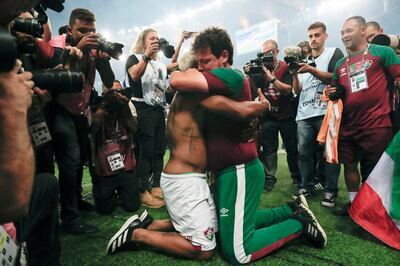
Flamengo, the only Rio team to have been crowned world champions, still sing about it with the lyrics of: “In December of ’81, we ran rings around the English, 3-0 against Liverpool, it went down in history.” That was when it was a one-off game between the champions of Europe and South America, but since 2000 and an inaugural tournament held in Fluminense’s home city of Rio, the tournament has featured the champions of every continent. Real Madrid have won the tournament in its various guises eight times.
Flamengo came third last year. By beating African champions Al Ahly this week with a display of aggressive, dominating football, Fluminense have ensured they will finish first or second.
Coach Fernando Diniz is credited with giving Fluminense their greatest moments. He returned to the club in April 2022, his 17th job in football management. When his side won the Rio state championship in January, it was Diniz’s first major trophy as a head coach. The Libertadores win last month came after progressing through a tough group including River Plate, who suffered their heaviest Libertadores defeat, 5-1 to Fluminense. The return group game in Buenos Aires was watched by 84,567, the largest crowd to watch a club football game in the world this season.
Brazilian rivals Internacional, of Porto Alegre, were defeated over two games in the semi-final. The second leg, a 2-1 win with two Fluminense goals in the last 10 minutes. Brazilian clubs have won the last five Libertadores finals.
Boca Juniors were defeated 2-1 after extra time in the final – a game played in Fluminense’s home stadium, the famous Maracana which they share with Flamengo. Their spiritual home, though, is at the elegant Laranjeiras (orange trees) stadium in a wealthy part of Rio (the neighbourhoods of Flamengo and Botafogo are adjacent) where 8,000 fans will watch the final against against City on a big screen. The beautiful main stand looks more like the pavilion at Lord’s cricket ground than a football stadium in South America. Home attendances at Maracana averaged 60,000 in the Libertadores run.
Diniz’s work hasn't gone unnoticed – he was also appointed as interim head coach of the Brazil national side in July on a one-year deal but it hasn’t gone as well as things have for the club team he manages. His football is unique, his teams try to create overloads by moving almost entirely to one side of the pitch, with wingers doubling up. The strikers are Argentine veteran German Cano, 35, who has become a star at the end of his career. His best partner is John Kennedy, a 20-year-old Brazilian.
Former Real Madrid and Brazil full-back Marcelo, 35, is a key player and nutmegged an opponent to win a penalty in the semi-final. Central defender Felipe Melo, who has played around Europe, including at Juventus, is 40. Goalkeeper Fabio is 43 and the oldest player in Fluminense’s history, also the oldest to win the Libertadores. Further forward, playmaker Paulo Henrique Ganso appears sprightly at 34.
British attitudes can be sniffy about the Club World Cup. When so many lesser games make it on to TV, the competition hasn’t even been televised in recent years, but in South America it’s a big deal and is treated as such – just as it is by City coach Pep Guardiola, who also took the tournament seriously when he was at Barcelona.
City are clear favourites. Fluminense may be champions of South America, but they were only the seventh best team in the Brazilian league in 2023, with a strong home record and a poor away one. They won their continent’s biggest competition in their home stadium; they now have the huge challenge of winning on the other side of the world, against perhaps the best team in it.
